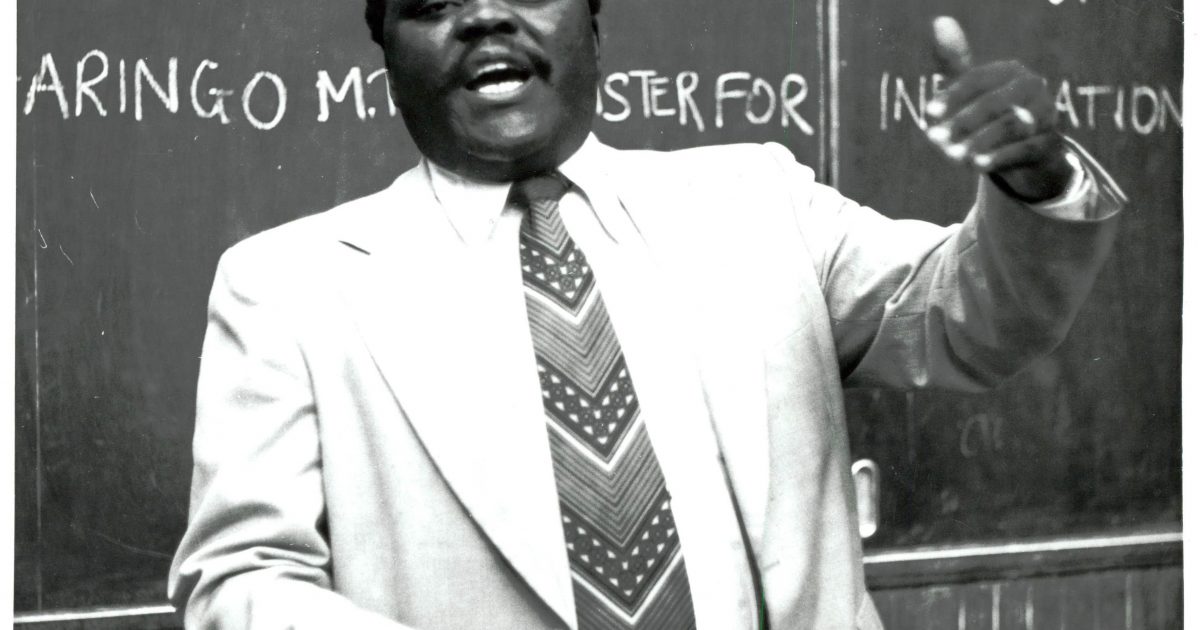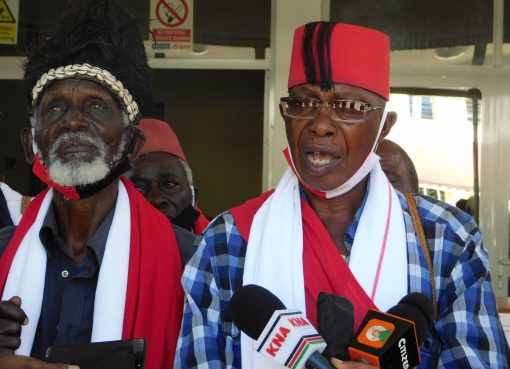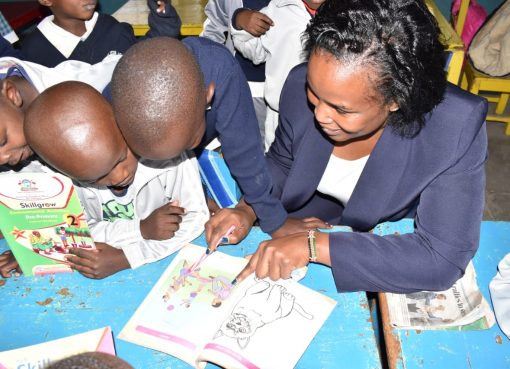For Kenyans, Peter Oloo Aringo may have been just another politician. But for the residents of Siaya, his home county, he was not just any other politician; he was a special, extraordinary leader who excelled not only in debating national issues in the August House but also one who relentlessly pushed for the interest of the common man’s rights and development.
Aringo, who died Friday evening while receiving treatment at a Nairobi hospital, served as the member of parliament for Alego-Usonga constituency (Siaya County) at different intervals and was at one time the Kenya African National Union (KANU) Party national chairman.
According to his long-time personal assistant, Mathews Obwolo, Aringo’s hand was clearly evident in most of the freedoms that the common Kenyans are enjoying currently.
He played a crucial part in the repeal of the notorious Chiefs Act (Cap. 210) and the establishment of the current National Government Constituencies Development Fund, formally the Constituency Development Fund, says Obwolo.
Obwolo says that for years when he was the legislator, Aringo kept the belief that harambees (fundraisings), which were commonly used to collect funds for development projects, could not be relied upon to develop the country, and there was a need for a way that the government could be compelled to release resources to fund development in the rural areas.
And this became how CDF was birthed. He came up with the idea and worked with like-minded people such as Eng. Muriuki Karue to craft the bill to establish CDF, which is credited with numerous visible and working development projects across the country.
On the chiefs’ act, Obwolo says that the former Minister for Information and Broadcasting disapproved the abuse of the act by the provincial administrators, who would take advantage of a slight opportunity to harass and confiscate property belonging to the citizens using the excessive powers the act bestowed on them. He cited cases of forceful confiscation of livestock and poultry to force residents to contribute to the infamous harambees towards financing development projects.
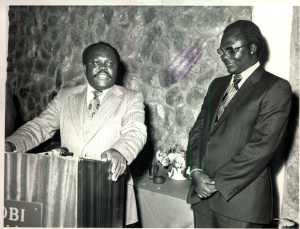
Apart from his contribution to the national arena, Obwolo says that the former KANU national chairman contributed a lot to the local development.
“He was the brain behind the establishment of schools like Barding, Hono, and Obambo secondary schools and polytechnics like Kosema, Ndere, and others,” he says.
Aringo was also the brain behind the construction of the Siaya County Information Office, says Obwolo.
A master orator and skilled politician, Obwolo says that Aringo knew how to turn tables in his favour and take advantage when need or a chance arose.
The late Aringo had some years ago told this writer how he took advantage of President Moi’s instruction to him as the minister for Information and Broadcasting to ensure that the ministry puts up an information office in Kabarnet.
“Moi was in good moods when he told me this, and I took advantage and reminded him that my district (currently County), Siaya, also did not have an office, and I would not mind constructing one too,” Aringo said when he paid a courtesy call to the County Information Officer, Siaya, sometimes in 2007.
Peter Oloo Aringo was born in 19th May 1941 in Alego, Siaya District.
He went to local schools in his area before joining St. Mary’s Secondary School, Yala (Siaya), in 1957. After passing his Cambridge School certificate, he was admitted to Siriba College, Maseno, where he trained as a teacher between 1961 – 1962.
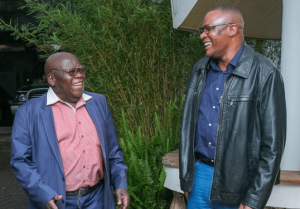
He was posted to St. Mary’s Yala, where he taught between 1963 and 1964, then taught at Kapsabet Secondary School. (He was Acting Headmaster of the School for a stint)
Between 1967 and June 1969, he undertook a Bachelor of Arts in Education and obtained a first-class Honours. He taught for four months at Ambira Secondary School, then proceeded to the University of Toronto, Canada, where he undertook study in Economics, History, Political Science, Philosophy, and Education, obtaining a Masters of Arts in 1971. He lectured on African Politics for a year at the same University.
In 1972, he returned to Kenya and was posted to Aquinas High School before joining Upper Hill School.
In 1973, he was appointed Vice Principal of Kenya Polytechnic, from which he resigned in 1974 to contest the Alego Usonga seat in that year’s general elections.
Aringo won the 1979 General elections and was appointed as Assistant Minister for Higher Education. Later, he was elevated to be Minister for Information and Broadcasting.
In March 1982, he was transferred to the Ministry of Environment but was relieved of his job later the same year and was replaced by Dr. William Omamo.
He won the 1984 General elections and in 1985 he was appointed an Assistant Minister under the joint Ministry of education, science, and technology. In 1986, he was elevated to Minister for Education.
After he won the 1988 General Elections, he was appointed Minister for Education. In 1991, he was transferred to the Ministry of Manpower Development but was relieved of his job the same year for his too obvious pro-opposition sentiments.
After the repeal of Section 2A, he defected from KANU and joined the opposition, consequently he lost his KANU National Chairmanship.
In the 1992 general elections, Aringo lost the Alego-Usonga parliamentary seat to journalist Otieno Mak’onyango but made a comeback in 1997, only to lose it again in 2002 to Sammy Arthur Weya.
By Philip Onyango


